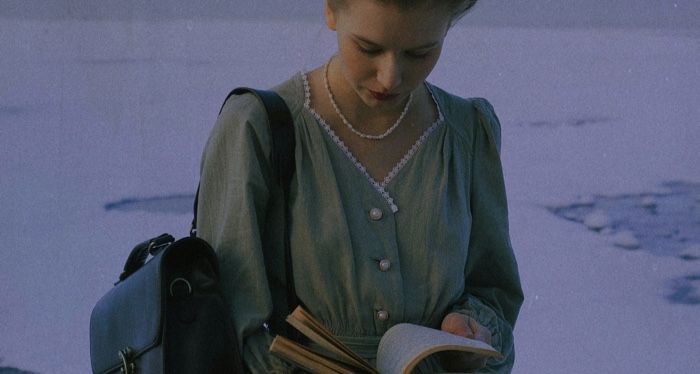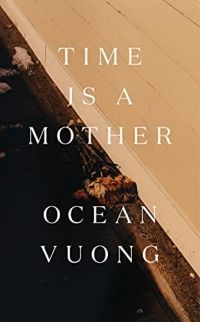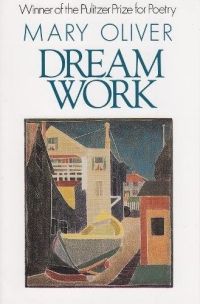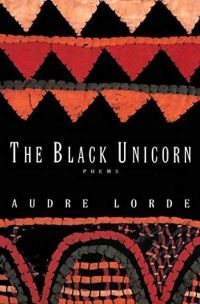
Holiday Downtime: Poetry Books to Inspire Year-End Reflection
During the last week of each year, I take off from work to do some year end rituals. Quaint, you might think. But I take this opportunity to reflect on the things that happened to me during the year — the things that I did, what I learned from them, the places I went to, the people I met, the people I lost, the terrible stuff that befell me, and the great things born out of them, too. I read up on various year-end lists on which songs, movies, books, and whatnot that made an impact and see where I was in life when they came out.
I don’t know where you live, it might be winter out there and cold, but it’s warm all year long where I am. So midweek, I take my paperbacks with me to the patio, sip a warm cup of tea, and write a long FutureMe letter.
This year, however, these year-end rituals seem difficult to pull off. I don’t know why, but maybe it’s because of the feeling that everything’s happening too fast, and I don’t have much room to breathe. To try to slow things down, one of the things that I’ll be doing differently this year is immersing myself in poetry. There’s magic in poems that somewhat captures the moment between an ending and a new beginning, to be melancholy and carefree at the same time.
Here’s what I’m reading and rereading to inspire reflection during these pensive times:

Teaching My Mother How to Give Birth by Warsan Shire
Shire was Beyoncé’s collaborator for her visual album Lemonade. The poems in here are lyrical as much as they are empowering. One poem that I keep going back to is this one: “the year of letting go, of understanding loss. // grace. of the word ‘no’ and also being able to say ‘you are not kind’. the year of humanity/humility. when the whole world couldn’t get out of bed,” Shire writes.
In a few verses, the poem sums up the cycle of life throughout the year: First there was love, then pain, realizations, and finally, healing. “the year i made peace and love, right here,” she ends it, as if she’s making peace with the people who hurt her, loving them anyway, and looking forward to a new year to come.

Time is a Mother by Ocean Vuong
This is Vuong’s second poetry collection after Night Sky with Exit Wounds. He writes lyrically and vividly about his mother’s loss, mourning her throughout the pages. “Inside my head, the war is everywhere. // I’m on the cliff of myself & these aren’t wings, they’re // futures,” he writes in one poem.
In “Reasons for Staying,” he opens with “October leaves coming down, as if called. // Morning fog through the wildrye beyond the train tracks,” as if remembering a painful memory. I haven’t lost anyone forever, but Vuong makes me reflect on past wounds, as if I could feel the depth of his pain, too. Though the collection has many bleak, melancholic moments, it has hopeful ones as well. “I was made to die but I’m here to stay,” he writes in “The Last Dinosaur.”

Dream Work by Mary Oliver
Poems can be complex to take in, but Oliver’s are accessible and graceful. In most of her poems in this collection, she seems to incorporate nature. In “Trilliums,” she writes about spring and dreams. In “Wild Geese,” she likens us to the winged creature: “the world offers itself to your imagination” and “calls to you like the wild geese.”
In the first entry “Dogfish,” she seems to write about pressing ahead despite the pain: “I wanted // the past to go away, I wanted // to leave it, like another country; I wanted // my life to close, and open // like a hinge, like a wing, like the part of the song // where it falls // down over the rocks: an explosion, a discovery.” Haven’t some of us felt that in some point in our lives this year? The feeling of wanting to bury the past where it belongs and just move forward?
“Every morning // the world // is created. // Under the orange // sticks of the sun // the heaped // ashes of the night // turn into leaves again,” she writes in “Morning Poem,” as if to remind us that there’s hope in a new day, a new season, and a new year.

Call Us What We Carry by Amanda Gorman
This collection was formerly called The Hill We Climb and Other Poems, which was the title months after Gorman had delivered a poem in President Biden’s inauguration.
In this repackaged volume, she writes about the past, hopes, and dreams, especially of the last two years. “Allegedly the worst is behind us. // Still, we crouch before the lip of tomorrow,” she opens in “Ship’s Manifest,” as if telling us that another year’s up and the terrible things are behind us now.
While the poems muse over a sorrowful past, it also has messages of hope and a better future. “Every day we are learning … // How to leave this pain that is beyond us // Behind us,” Gorman thankfully reminds us. It’s a powerful collection.

Meditations in an Emergency by Frank O’Hara
O’Hara was one of the most prominent poets in the 20th century. In this collection, he writes about his thoughts and musings on living in New York City. “The country is grey and // brown and white in trees, // snows and skies of laughter // always diminishing, less funny // not just darker, not just grey,” he writes in “Mayakovsky,” which probably best describes the weather lately.
Like some of us, O’Hara appears pensive and personal in this book, writing about different people he has witnessed. In the titular poem, he writes, “Each time my heart is broken it makes me feel more // adventurous,” telling us that there is silver lining in every dark cloud.

The Black Unicorn by Audre Lorde
Lorde’s collection is all about Black woman empowerment.
“This first bright day has broken // the back of winter. // We rise from war // to walk across the earth // around our house // both stunned that sun can shine so brightly // after all our pain,” she writes of hope after the storm in “Walking Our Boundaries.” The poem evokes fond and mournful memories this year. While I think of my next steps for the coming one, reading the collection buoys me up.
“I do not know when // we shall laugh again // but next week // we will spade up another plot // for this spring’s seeding,” she continues. Indeed, next week, we’ll have another chance for a fresh start.

The Hurting Kind by Ada Limón
This collection is divided into seasons of the year and feels a lot like an assessment of the year past, with its ups and its downs.
Limón’s poems are so rich they transport the senses elsewhere, as if you’re also experiencing her joy and sorrow. And just like the seasons, your outlook may change when you read each poem. “I am human, enough I am alone and I am desperate, // enough of the animal saving me, enough of the high // water, enough sorrow, enough of the air and its ease, // I am asking you to touch me,” she writes in “The End of Poetry.”

a Year & other poems by Jos Charles
Charles dedicates a section to each month of a year, from January to December, where she seems to recount a storied life. “I hold like a stone & // even you I turn // my head to a thousand possible things // gone It is all I hold // now & spring,” she seems to write about loss in “May.” As the months pass, the events seem to reach a crescendo. In “July,” readers are brought back in those hot summer days. “I’m always in // empty summer // homes by the sea,” she writes.
As the seasons change, the poems become somber. But they are a treat — you’ll want to savor them slowly and ponder on your own year, too. “Impossible the leaves have changed,” she writes in “September,” as if bewildered how everything wore on so fast the leaves turned from green to orange.
This time of the year is the perfect opportunity to reflect on this year’s comings and goings, and to plan out our next steps in the upcoming one. I hope you still find gratitude no matter how harrowing life is, as do the poets in this list. I hope their works may inspire you to reflect on a life well-lived.
For more poetry books to read these “dark, pensive winter nights,” here are poetry books to get you through the winter.
















